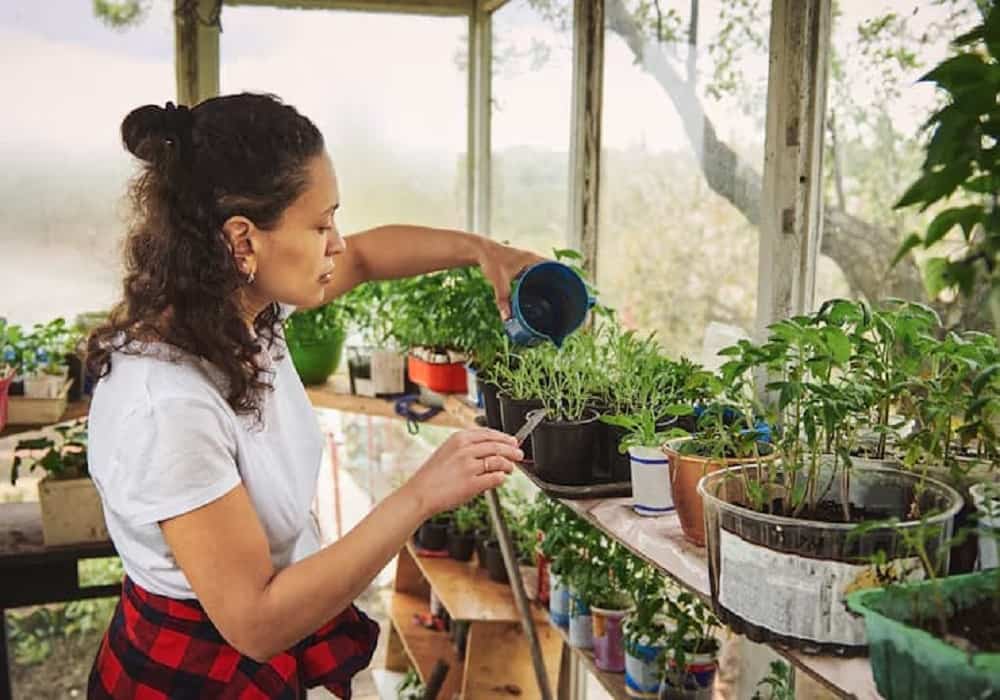Easy and Effective Home Gardening Tips for Beginners
Home gardening is a fulfilling pursuit that enhances your living environment with joy, fresh produce, and greenery. Regardless of whether you have an expansive backyard or a modest balcony, gardening is an accessible activity for everyone. For those new to this area, this guide titled home gardening tips for beginners will facilitate a smooth initiation into your gardening journey.
1. Begin with Small and Manageable Projects: Home Gardening Tips
One fundamental suggestion for novice gardeners is to commence with manageable tasks. Rather than overwhelming yourself with an extensive garden, start with a few easy-to-cultivate plants such as herbs (like basil, mint, or cilantro) or resilient vegetables (such as tomatoes, radishes, or spinach). As your confidence grows, you can gradually expand your garden and experiment with more intricate plants.
2. Select an Appropriate Location
The placement of your garden is vital to the success of your plants. Most vegetables, fruits, and flowering species require at least 6-8 hours of sunlight each day. Monitor your area throughout the day to identify the brightest spot. For indoor gardening, position plants near windows or utilize grow lights.
3. Assess Your Soil Conditions:
Healthy soil serves as the foundation for a flourishing garden. Evaluate your soil for its pH level and nutrient composition to ascertain what amendments it may require. For beginners, utilizing organic compost or a commercially prepared potting mix is a straightforward method to ensure your plants receive adequate nourishment.
4. Acquire Essential Gardening Tools
There is no necessity for an expensive toolkit to begin your gardening venture. Basic implements such as a trowel, pruning shears, a watering can, and gloves are sufficient to get started. These tools will enable you to plant, prune, and care for your garden with ease.
5. Choose Plants Wisely
When initiating your gardening experience, opt for plants that are compatible with your local climate and growing season. Some beginner-friendly choices include:
- Herbs: Basil, parsley, mint
- Vegetables: Lettuce, cherry tomatoes, cucumbers
- Flowers: Marigolds, zinnias, petunias
Local nurseries can offer recommendations on plants best suited for your region.
6. Perfect the Art of Watering
New gardeners often err with watering, either overdoing it or neglecting their plants. Keep the following watering principles in mind:
- Assess soil moisture by inserting your finger into the top inch. Only water if it feels dry.
- Morning is the optimal time for watering plants as it curtails evaporation.
- Refrain from wetting the leaves, as this can promote fungal diseases.
7. Gain Knowledge on Fertilizers and Composting
Fertilizers supply critical nutrients necessary for plant growth. Employ organic fertilizers or compost to enhance your soil. Composting kitchen scraps like vegetable peels, eggshells, and coffee grounds provides an excellent opportunity to minimize waste while nourishing your plants naturally.
8. Manage Pests Using Natural Methods
Pests may pose challenges for beginners, but effective management is achievable without resorting to harsh chemicals.
- Utilize natural solutions such as neem oil sprays or soapy water to deter pests.
- Introduce beneficial insects like ladybugs into your garden.
- Perform regular inspections of your plants for pest signs and remove any affected leaves promptly.
9. Utilize Mulching Techniques
Mulching presents a simple yet effective practice that offers various benefits. By applying a layer of organic material (such as straw, leaves, or wood chips) around your plants, you can:
- Conserve soil moisture
- Moderate temperature fluctuations
- Minimize weed growth
10. Maintain a Gardening Log
Documenting your gardening endeavors will enhance your knowledge and skills. Record details such as planting dates, weather conditions, and plant development. A gardening log enables you to reflect on successful strategies and avoid past errors.
11. Be Patient and Consistent
Gardening rewards those who wait. Plants need time to develop, and challenges will occur. Regular activities like watering, pruning, and checking on your plants will promote growth. Celebrate small wins, such as the first sprout or flower, to keep your enthusiasm high.
12. Try Container Gardening
Container gardening is perfect for beginners with limited space. Use pots, grow bags, or other containers to cultivate herbs, vegetables, or flowers. Ensure your containers have good drainage to prevent water accumulation.
13. Connect with Gardening Communities
Connecting with other gardeners can spark creativity and provide useful insights. Join local gardening clubs, attend workshops, or engage in online groups to tap into the knowledge of seasoned gardeners.
14. Recycle and Repurpose
New gardeners can save money by utilizing items around the house. Egg cartons, yogurt cups, and tin cans are great for starting seeds. Old buckets or crates can also serve as planters.
15. Enjoy the Process
Remember, gardening is about savoring the experience as much as enjoying the results. Spending time outdoors, caring for plants, and watching them grow can be a rewarding and calming activity.
Conclusion
Starting a home garden might seem overwhelming, but with these beginner gardening tips, you’ll soon create a vibrant green space. Start small, select suitable plants, and care for them properly. As you gain experience, both your skills and garden will flourish together.






